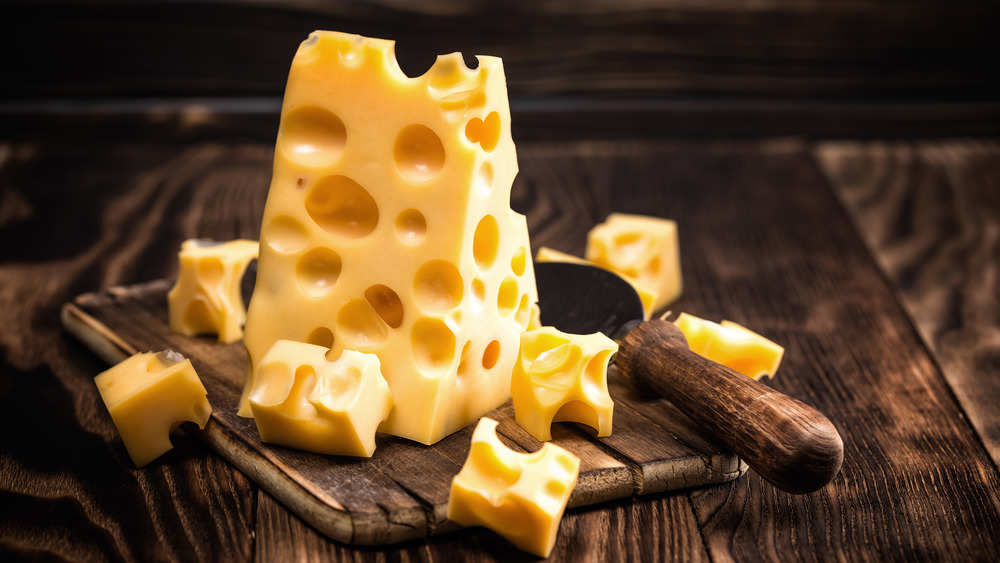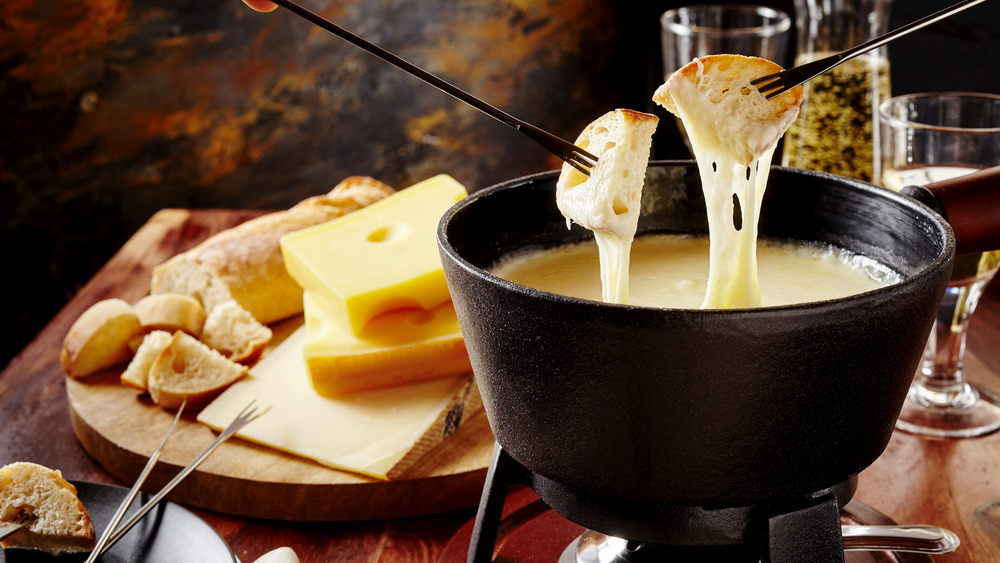The Untold Truth Of Swiss Cheese
For many people, cheese is one of the most comforting ingredients in the world. And according to BuzzFeed, this love of (or borderline obsession with) cheese goes way back in history. There have been cheese strainers found in Poland that date back to roughly 7,500 years ago. Nowadays, this tasty food is a common staple in households and the dishes people create. The most popular cheese dish in the U.S. is mac and cheese (via BuzzFeed), but there are so many ways to cook with cheese and an overwhelming number of varieties — so don't just stop there.
As far as Swiss cheese goes, there are several types to choose from and you don't have be to be restricted to one type. As an article by Food & Wine points out, Switzerland has hundreds of cheeses to pick from and most of them are made using cow's milk. Liz Thorpe, author of The Book of Cheese: The Essential Guide to Discovering Cheeses You'll Love, told Food & Wine that the local environment makes it much easier to focus on dairy farming and manufacture cheese. Thorpe said, "It's really unusual to find a sheep's or goat's milk cheese — they exist, but very, very nominally. You tend to find goats and sheep in more marginal climates, places that are really hot and dry, places that don't grow grass so well."
This is what makes Swiss cheese special
One of the most well-known reasons Swiss cheese is special is its trademark holes and taste. And as reported by Smithsonian Magazine, those things are there for a reason. There have been plenty of myths around why; one of those being that Swiss cheese's holes came from bacteria that led to gases and eventually, holes in the cheese. Turns out, the real reason for these holes is much simpler: tiny bits of hay that fall into the milk used for making the cheese.
Additionally, as The Spruce Eats explains, the most common types of Swiss cheese are names you're probably familiar with: Emmental (or Emmenthal) and Gruyère. These are the types you'll often spot when enjoying a bowl of fondue. In Switzerland, Swiss cheese is made carefully and manufacturers have a strict set of guidelines to follow. But in the U.S., big companies produce the cheese on a massive scale in order to offer the product at affordable rates.
This slash in quality could be why some folks are not fans of the Swiss cheese varieties that are made in the U.S. One Redditor wrote, "American mass-produced 'Swiss' is, by and large, garbage in my opinion. I'm fortunate enough to have a cheese shop in town that sells (among many other varieties, both well-known and obscure) actual Swiss cheese, and the difference is often night and day." You might just need to book yourself a future trip to Switzerland then.

